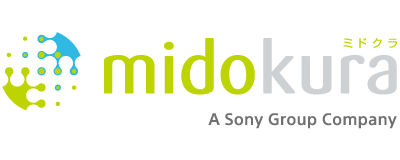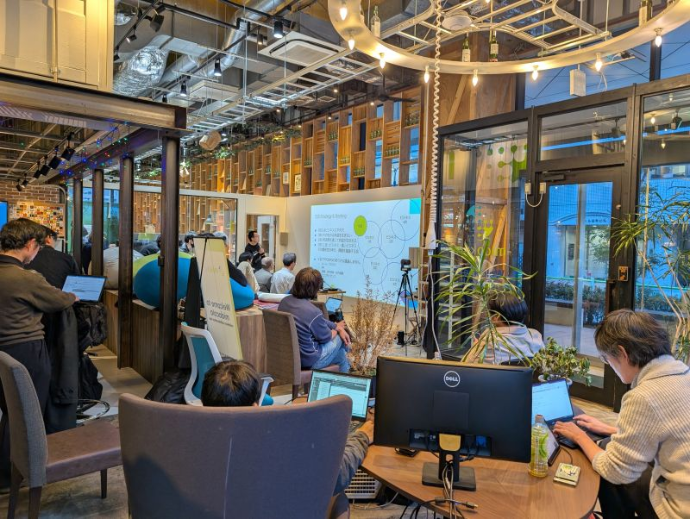In this case study, we explore how Odoo became the backbone of Midokura's global financial operations. With multi-company and multi-currency accounting features, the solution empowered Midokura to gain real-time visibility, simplify compliance across jurisdictions, and lay the groundwork for scalable international growth.

Company Name: Midokura Japan
Industry: Global Venture / Software Development
Location: Tokyo, Japan (with operations in Spain and Switzerland)
Company Size: Medium-scale company (70+ employees worldwide)
Current Scale: Japanese subsidiary of Sony Semiconductor Solutions, operating globally with offices in Japan, Spain, and Switzerland
Time of Implementation: 4 months (3 months implementation + 1 month Hypercare)
Systems Implemented:
- Accounting App (multi-currency, global chart of accounts including invoicing & localization for Japan, Spain & Switzerland
- Consolidation App (Intercompanies consolidation)
- Employee Expenses
“For global startups like us at Midokura, we needed a cost-effective system that enables global accounting operations," states Junichi Fujioka, Vice President and head of the corporate department at Midokura Japan.
As a subsidiary of Sony Semiconductor Solutions with operations in Japan, Spain, and Switzerland, Midokura's financial infrastructure struggled to keep pace with its global growth.
Despite using NetSuite, a sophisticated ERP system, the company faced mounting challenges with rising costs, limited visibility, and time-consuming processes that hindered its ability to focus on its core business: developing Sony's edge AI sensing platform, Aitrios.
Cross-Border Expansion Meets Spreadsheet Chaos
As Midokura scaled its presence across Japan, Spain, and Switzerland, its financial systems began to show their limitations. Each entity managed its accounts independently, relying heavily on spreadsheets and localized, manual processes.
"I've worked in corporate management and accounting for over 30 years, and our situation was becoming increasingly challenging," Fujioka notes. With responsibility for financial operations across three countries but no in-house accountants at overseas offices, he directly managed relationships with local accounting firms from Tokyo.
Their challenges were threefold:
1. Rising Costs: NetSuite's annual operational expenses were continually increasing, affecting their budget efficiency
2. Limited Visibility: Despite using an advanced ERP, cross-border financial visibility was severely lacking. "NetSuite's consolidation features were difficult to use," Fujioka explains. "We used to export individual financials to Excel and consolidate manually."
3. Complex Compliance: Meeting different regulatory requirements across Japan, Spain, and Switzerland without a unified system was becoming increasingly burdensome
The lack of real-time financial visibility particularly affected their decision-making capabilities. Management needed timely insights into their global financial position, but the existing processes couldn't deliver. As their operations grew, these limitations became a significant barrier to strategic planning.
What Midokura needed was clear:
- A unified accounting system to connect all legal entities
- Real-time access to both local and consolidated financial reports
- A scalable, cloud-based infrastructure that could evolve with their growth
"We had two minimum requirements. The system must be cloud-based and support multi-currency operations. Odoo offers the same functionality as NetSuite but at a lower operational cost, and since the cost doesn't increase annually, we can use it with peace of mind," explains Fujioka.
Centralizing Finance Operations with Odoo’s Powerful Toolkit
To meet these needs, Midokura partnered with Portcities to implement a centralized Odoo ERP system. Purpose-built to handle the complexities of multi-entity accounting, Odoo provided:
- Multi-Company Configuration: Enabling centralized control while maintaining local entity autonomy
- Multi-Currency Support: Allowing for accurate, automated currency conversions and group-level consolidation
- Localized Accounting: Compliance ready flows for Japan, Spain, and Switzerland
- Intercompany Transactions: Automatic reconciliation and streamlined invoicing between entities
All of this was hosted on a secure cloud infrastructure giving teams global access to financial data, anytime and anywhere.
"A key advantage of Odoo is its ability to handle multi-currency and multi-entity operations. This capability is especially valuable for Japanese companies expanding internationally, where few affordable systems can truly support these functions for small and medium-sized enterprises." notes Director of Portcities' Japan - Stanislav Belooussov.
Implementation Highlights
- Data & Process Alignment
Midokura’s country-specific workflows were carefully mapped and standardized to align with Odoo’s best practices. This ensured data consistency and accuracy across all entities. - Customizations & Localizations
Portcities tailored the system to meet the compliance requirements of each region, configuring tax rules, charts of accounts, and financial reports specific to each country’s legislation. - Real-Time Financial Visibility
The leadership team now monitors global financials through Odoo dashboards, with real-time access to both local and consolidated reports—boosting agility and confidence in decision-making.
By using Odoo, we can unify operations. For example, using the same chart of accounts allows us to see real-time financial data from anywhere in the world," explains Fujioka. This centralized approach transformed their visibility across all operations
From Complexity to Clarity: The Impact of Odoo at Midokura
Just months after implementation, Midokura began to see significant improvements:
- Faster Month-End Closing: Streamlined processes and automation cut down reporting cycles
- Global Financial Visibility: Headquarters gained instant access to group-wide financials
- Cost Efficiency: Reduced dependency on manual processes and external tools
- Audit-Readiness: Well-structured, consistent data improved transparency and compliance
Building for The Future
With its unified financial system in place, Midokura has transformed its financial operations from a limitation into a strategic advantage. The collaboration with Portcities continues to evolve as both companies adjust to Midokura's changing needs.
"For companies already operating globally—or—planning to expand standardizing accounting operations and gaining visibility into financial data are critical challenges then for global startups like ours, Odoo is a cost-effective system that enables global accounting operations." reflects Fujioka.
This agile partnership ensures Midokura's financial infrastructure will continue to support its international growth, allowing the company to focus more resources on its core business while maintaining financial clarity across borders.
What the client say:

"With Odoo, we’ve moved from fragmented processes to a centralized, scalable finance system. Now, we can make faster decisions, maintain compliance, and support our global teams more effectively"
Junichi Fujioka • Head of The Corporate Division, Midokura, Japan
Ready to Future-Proof Your Global Finance?
Midokura’s journey is proof that digital transformation isn’t just about replacing old tools—it’s about building smarter systems for the future. With Odoo, they now have the financial clarity, flexibility, and scalability needed to support global growth.
Is your global financial management holding back your company's growth potential? Contact Portcities to discover how our Odoo multi-currency solutions can transform your international financial operations.